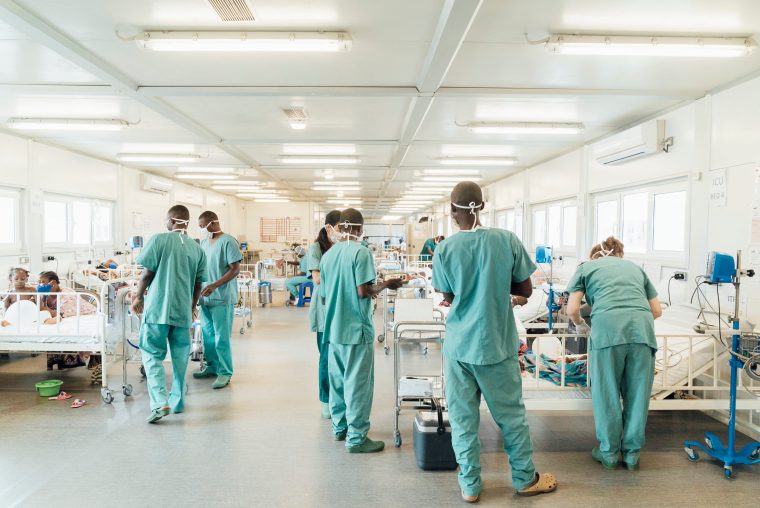Posted on March 30, 2022
Grantee Highlight: Doctors Without Borders/Médecins Sans Frontières is caring for people caught in the effects of the climate crisis
Note from the CREDO team: This April, Doctors Without Borders/Médecins Sans Frontières is among three amazing groups that will receive a share of our monthly grant. Funding from the CREDO community will enable MSF to provide free, quality, life-saving medical care to those who need it most in over 70 countries.
Read this important blog post from Doctors Without Borders/Médecins Sans Frontières below, then click here to visit CREDODonations.com to cast your vote to help determine how we distribute our monthly grant to this organization and our other amazing grantees this April.
Doctors Without Borders/Médecins Sans Frontières (MSF) is an international medical humanitarian organization providing aid to people around the world without regard to race, religion, or political affiliation. Founded in 1971, MSF has 50 years of experience providing impartial medical humanitarian aid combined with a commitment to speaking out against the causes of suffering and the obstacles to providing effective assistance. Each year, we provide care for around 10 million people caught in war zones, epidemics, natural disasters and more.

MSF teams respond to some of the world’s most high-profile emergencies—as well as many of the least visible. Often, MSF patients live in temporary shelters or camp settings, while others suffer from the impacts of direct violence, disease, or malnutrition near their homes.
Caring for people caught in the effects of the climate crisis has been an increasing element of MSF’s work, and we have observed the impacts of climate change on the people we treat and on our medical humanitarian activities. Climate change is having catastrophic effects on already vulnerable people in many of the places where MSF works. The evidence of a changing world includes increasingly intense and frequently extreme weather-related disasters, among them severe droughts and floods, violent hurricanes and cyclones, and heat waves. MSF medical teams are seeing the onset of other consequences of climate change in many countries: from water scarcity and food insecurity to worsening malaria and dengue fever outbreaks. In South Sudan, MSF teams have helped to manage and prevent outbreaks of malaria and provided food aid to people living in regions that have been impacted by increasingly severe seasonal floods. In southern Madagascar, MSF mobile clinics deliver therapeutic food rations and medical care to people who are struggling to farm in the midst of a historic drought.

MSF staff recognizes that we have a social and ethical responsibility to understand and minimize our environmental impact while providing medical humanitarian aid to our patients.
In 2021, we launched the Climate Smart MSF initiative to advance our commitments to address climate change into concrete action that sets the stage for our organization to significantly reduce its environmental impact and become progressively greener and more environmentally sustainable. MSF has always been a leader developing innovations in global health approaches and providing emergency medical humanitarian care, and Climate Smart MSF directs our organization’s expertise to improving our role in planetary health.

In practice, Climate Smart MSF initiatives allow MSF to prioritize the creation of sustainable systems that work in a variety of contexts. In Kenema District, Sierra Leone, MSF operates a pediatric hospital with an intensive care ward that is vital for local patients. But the hospital was not fully connected to the local power grid, creating logistical challenges. MSF installed a hybrid electrical system utilizing solar panels that is planned to provide 100 percent renewable energy for the hospital in the future. Similar systems have been planned and executed at other MSF projects around the world, to help offset the often considerable power needs that providing necessary medical care can produce.
Frequent air travel, the choice of training locations, supply chain logistics, the use of plastic materials, medical waste, and fossil fuels for vehicles and buildings are all possible impacts to be examined, avoided where possible, and reduced.

Climate Smart MSF is a unique initiative created to measure and mitigate MSF’s carbon emissions and waste production, map the supply chain and increase sustainability, and share best environmental practices. The ultimate goal is to help scale environmental sustainability across MSF globally and transform a medical humanitarian aid organization into a more responsible, responsive, and resilient one for future generations.


